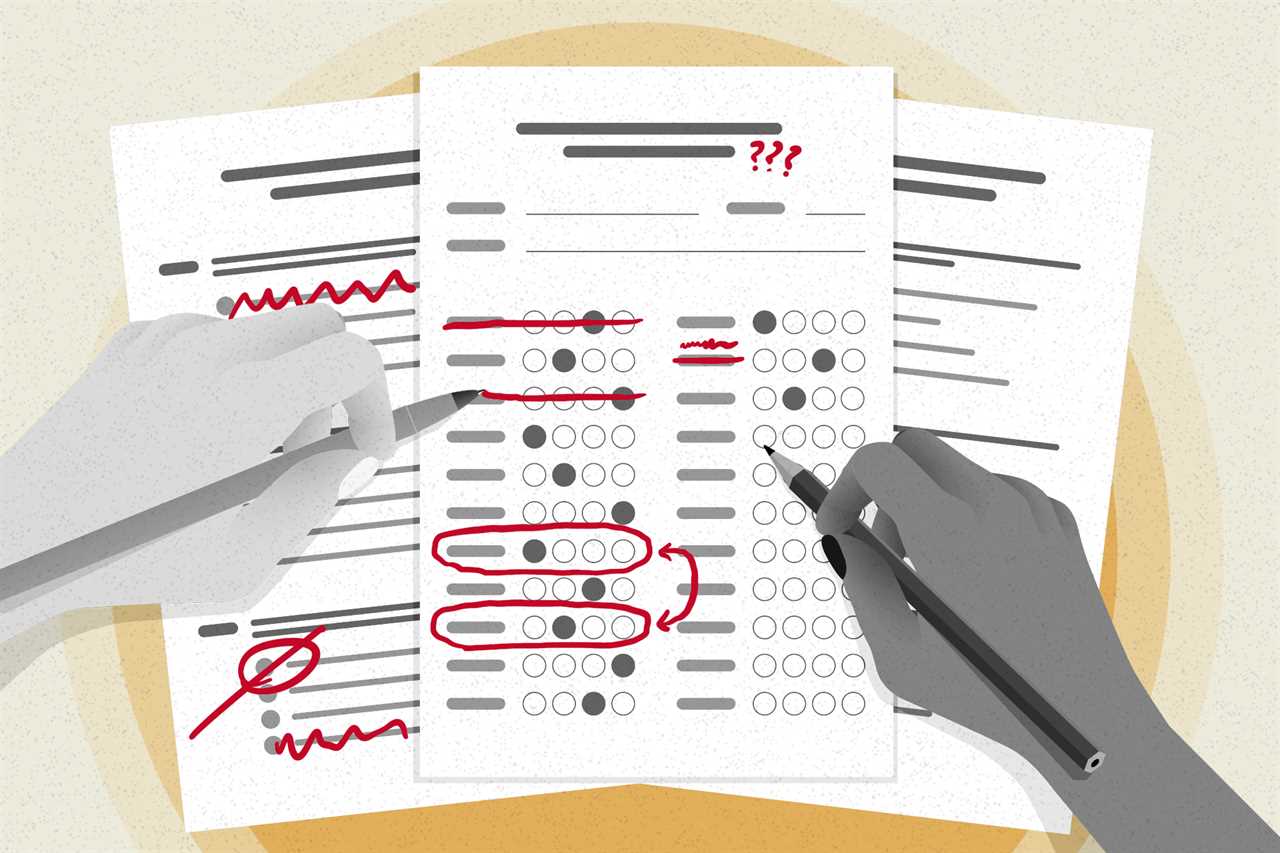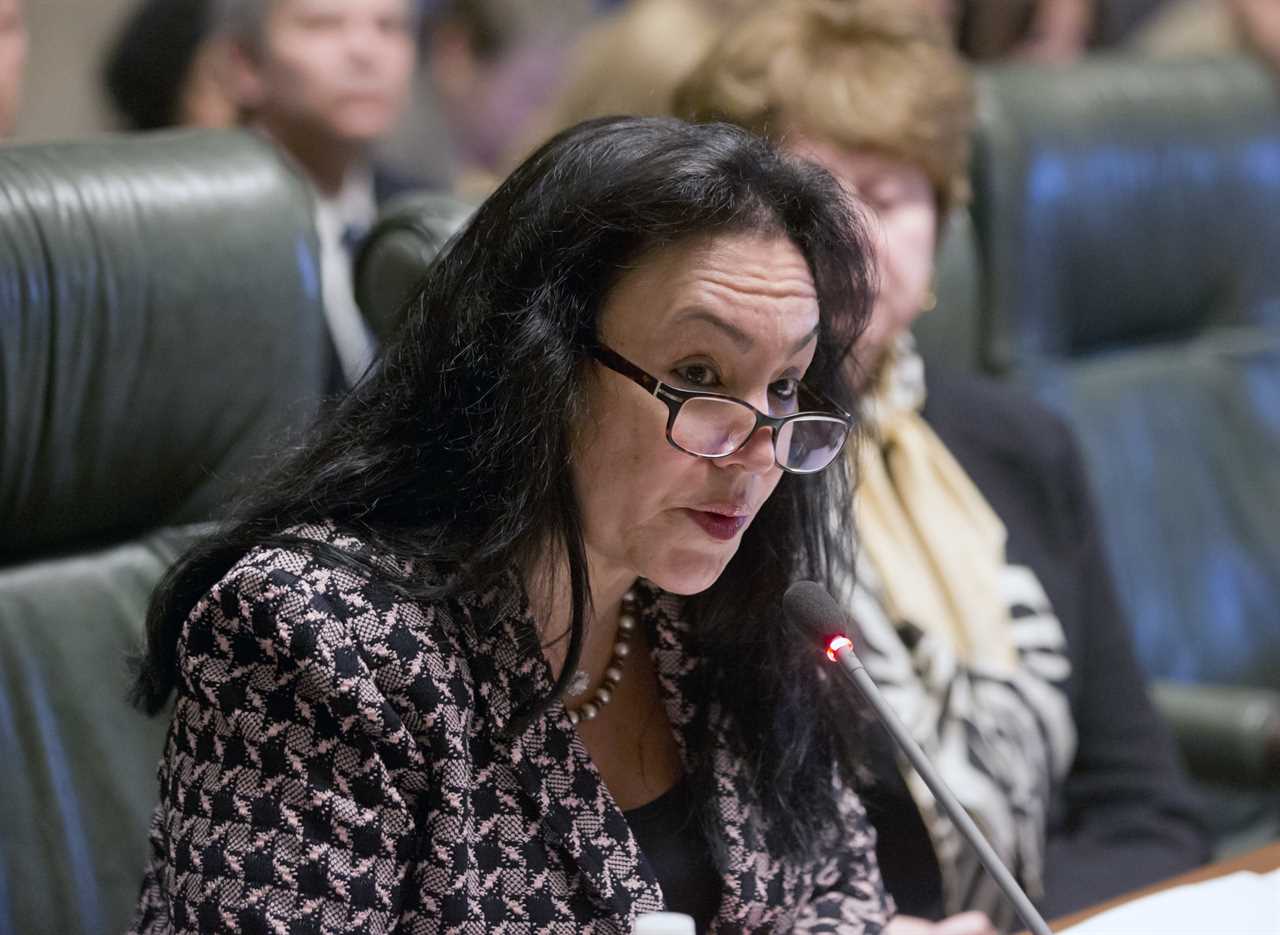
Fueled by worries over the pandemic, equity and learning loss, Republicans and Democrats are rewriting decades’ worth of strict standardized testing and graduation requirements.
Florida lawmakers are angling to drop mandates for the state's high school students. Georgia officials, led by a Republican superintendent, have allowed schools to reduce the impact of state test scores on final student grades. And in Louisiana, legislators and education officials are at odds over a plan to let seniors graduate if they cannot meet minimum state test scores.
The latest state poised to rebuild its high school testing system is New York, where education officials have created a blueprint to overhaul graduation requirements and learning standards needed to earn a high school diploma.
“When school systems have the kinds of results that are showing up as they are, it gives the opportunity to take stock and rethink,” New York Education Commissioner Betty Rosa said in an interview. “We wanted to make sure that success was defined in a much broader sense than just paper and pencil, or getting a 90.”
Standardized testing debates have been a hallmark of U.S. education policy, raising thorny questions about what's effective and how to ensure kids are graduating with baseline knowledge of math, writing and other skills.
But as student scores scrape new lows in the aftermath of the pandemic — U.S. math scores on a benchmark international exam dropped sharply alongside the rest of the world between 2018 and 2022, according to results released this week — education officials are reconsidering the high-stakes role tests play in the American education system.
While some civil rights groups and education experts are pushing to maintain stringent standards, an array of competing politicians and policymakers argue today’s testing consumes too much classroom time in service of outdated practices that do not fully identify what students know — or let parents and educators know what is working.
“Because of Covid, learning loss, and the increasing concerns about equity, you're starting to see states say ‘We're not sure what these tests are telling us,’” said David Cleary, who served as chief of staff to former Tennessee Republican Sen. Lamar Alexander and GOP staff director of the Senate’s education committee.
“You’ve got kind of a bizarre coalition of progressive lefty people who still like tests, and remnants of the Bush-era accountability mavens who still like tests. But those are waning,” Cleary said in an interview. “So states are really trying to figure out how we measure the quality of education — or the lack of quality of education that we’re providing — and what role do tests have.”
The movement to overhaul K-12 student testing is also being pushed by President Joe Biden’s Education Department, which is encouraging more states to experiment with new approaches. One Democratic lawmaker, backed by national teachers unions, has even sponsored longshot legislation to scale back federal testing requirements.
Rep. Jamaal Bowman of New York introduced legislation this year to reduce the frequency of federally-mandated testing. Though he acknowledged there is no room for the More Teaching Less Testing Act to pass this year, Bowman said private discussions with colleagues and a growing sponsor list leave him hopeful.
"When I have one-on-one talks with Republican colleagues, they are of the same mindset that we do testing too much and for too long, but at the moment they have not been able to say that publicly," Bowman said in an interview. “This year is about planting the seeds and creating the paradigm shift to passing this legislation."

Many states are already exploring testing tactics that go beyond multiple-choice exams and easing test scores’ burden on students, nearly a decade after lawmakers granted states flexibility to design their own standards as part of sweeping changes to the landmark No Child Left Behind law.
“We're starting to now finally see some of the flowers bloom, almost nine years later, of states really trying to figure out ‘Okay, we have flexibility here, how important are these tests?’” Cleary said.
That doesn’t mean change happens easily, or quickly.
In Florida, state Senate leaders want to scale back high-stakes testing as part of broader changes to public school policies. Yet senators are facing resistance as they attempt to convince Republican Gov. Ron DeSantis’ administration, House lawmakers — and even former Republican Gov. Jeb Bush — to buy in.
One Senate proposal would pull the teeth from three key state exams that have been staples since the Bush administration, namely by dropping high school graduation requirements that call for students to pass math and English tests.
The testing changes are backed by many school leaders who urged lawmakers to adopt them and argue students spend too much class time devoted to passing exams. These ideas, however, are already facing opposition from prominent critics.
Abandoning the state’s English and math testing requirements “further reduces expectations and hampers Florida's workforce development efforts,” Bush wrote in a recent Orlando Sentinel op-ed. “Removing this requirement may aid Florida's graduation rates, but it will reduce the diploma to nothing more than a participation certificate.”
In Louisiana, the state superintendent is tussling with education officials and the departing governor over a plan that could allow seniors to graduate without passing a state high school graduation exam.
The state Board of Elementary and Secondary Education earlier this year approved a policy where seniors can appeal to receive a diploma if they do not score high enough on the state exit test but meet other benchmarks.
“The value of state testing cannot be overstated,” board President Holly Boffy said this summer. “In some circumstances however, the standardized testing process itself serves as a barrier to students, preventing them from validating the learning they have achieved.”
State Superintendent Cade Brumley opposed the idea, calling it “bad for Louisiana” and a “government-sanctioned excuse for mediocrity.” Conservative House lawmakers shot down the proposal this fall, only to be overruled by departing Democratic Gov. John Bel Edwards.
Boffy then moved to implement the change via an emergency order last week — but reversed course after Brumley pushed schools to ignore the directive or risk legal action and revoked diplomas.
"It's this idea that the parents are customers and the customers are always right, and so there are some Republicans that have moved away from the notion of the importance of standards and accountability, and being able to measure schools based on quality standards,” said Michael Petrilli, president of the conservative Thomas B. Fordham Institute and a proponent of tough testing standards, in an interview. “I think there is a sort of populist and nihilistic view that we will just let the market decide."
Yet Linda Darling-Hammond, the president of the Learning Policy Institute who has served as an education adviser to Biden, said many states are considering changes back to forms of testing used before No Child Left Behind.
Previous iterations of the New York Regent exam relied less on multiple choice and more on long-form questions, which Darling-Hammond said demonstrate a deeper understanding of the material. In the 1990s, she noted, tests mandated by Washington were conducted less frequently and used more open-ended questions.
"We have been falling in the international rankings for a very long time," Darling-Hammond said. "While we are the country that tests kids more frequently than any other country in the world, that has not produced the outcome that I think were intended from the switch to high-stakes multiple choice testing."
In New York, early efforts to “rethink the high school diploma” faced harsh pushback until the pandemic, Rosa said. The murder of George Floyd and ensuing protests created urgency around discussions about racial equity. Learning losses highlighted the need to create pathways for students that struggle in a traditional school setting or with standardized exams, she said.
"I think the backlash happened because of the fact that people immediately went to lowering the standards. And part of it was still coming out of what had just gone through with the Common Core, so there was a lot of tension with that," Rosa said.
She said many thought of her initiative as a move to take away the state's Regents exams — which has long been lauded as a gold standard for education — but her goal was to expand the options for earning a diploma.
Earlier this month, New York released the first step in what Rosa expects to be a five-year journey to revamp its graduation requirements and learning standards. If approved, the state will lose its three-tiered high school diploma system, eliminating its highly respected Regents diploma in lieu of one diploma that would include seals of achievement.
The department is proposing a move to revamp its standardized testing with more open-ended questions and performance-based learning. All the changes will take years to implement, and some will require financial support and action by the state Legislature. Rosa said the goal is to have a plan to present to the Board of Regents this summer.
“We’re going to be intentional and deliberate,” Rosa said. “It’s all about leveling the playing field.”
Andrew Atterbury contributed to this report.
----------------------------------------
By: Katelyn Cordero and Juan Perez Jr.
Title: ‘A bizarre coalition’: Red and blue states weigh big changes to testing requirements
Sourced From: www.politico.com/news/2023/12/06/standardized-testing-changes-backlash-00129688
Published Date: Wed, 06 Dec 2023 05:00:00 EST






